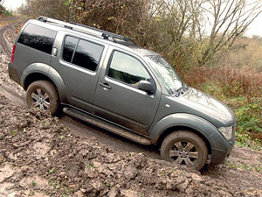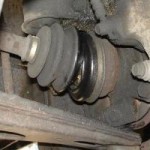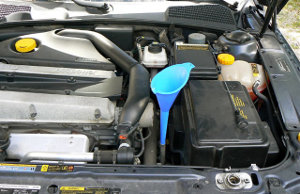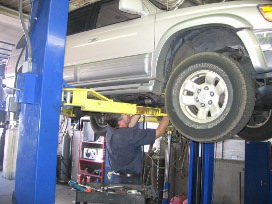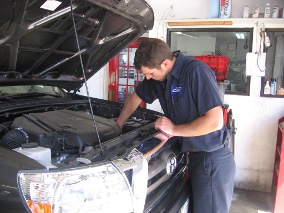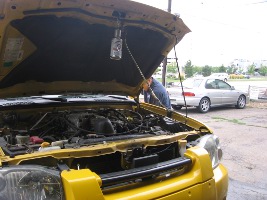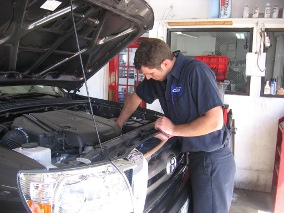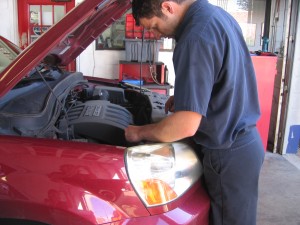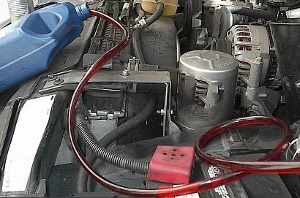 Have you ever had a dream where you’re racing down the highway with the wind in your face and then all of a sudden it becomes a nightmare, and you lose your ability to steer your car? I have, and I decided at that moment, I never wanted to have that experience in my real life!
Have you ever had a dream where you’re racing down the highway with the wind in your face and then all of a sudden it becomes a nightmare, and you lose your ability to steer your car? I have, and I decided at that moment, I never wanted to have that experience in my real life!
The power steering system is one of the most critical parts of your vehicle. Rack and pinion steering is the most common type of steering found in cars and minivans, but you can also find it on some SUVs and trucks. To put it simply, rack and pinions are a pair of gears that work together to steer the vehicle. In order to operate smoothly, the gears need hydraulic fluid, which is also called power steering fluid, to transmit power to your vehicles power steering system. If the power steering fluid is dirty and isn’t flushed, there is an increased risk of damage to the entire power steering system. A power steering flush is simply draining out your car’s old power steering fluid and replacing it with fresh fluid. The function of the fluid is to transmit hydraulic pressure so you can steer your car easily in every driving situation no matter the temperature, from frigid cold to scorching heat. Power steering fluid also lubricates the pump, controls the valves, and ensures a quiet operating system.
Over a period of time, the internal power steering components, as well as the seals and O-rings are subjected to wear and tear and they will begin to wear out. When this happens the power steering fluid gets contaminated with broken down debris. This forces the power steering pump to work harder. Now the power steering pump has to pump the debris as well as the fluid and it eventually breaks down. We have noticed that the 1996-1999 Toyota 4-Runners and Toyota Tacomas seem to be more prone to leaks if their systems aren’t flushed routinely. If you own one of these vehicles you might want to have the power steering fluid checked to make sure you don’t need a power steering flush. The fluid should appear either an amber or pink in color when it is fresh. It is time for a change when the color appears significantly darker than when it was fresh. Check your owner’s manual for specific recommendations for your particular vehicle. If they aren’t available, a good rule of thumb is to change the power steering fluid as often as you change your engine coolant {anti-freeze}. Since the fluid is the least expensive part of your power steering system and flushing it can help prolong the life of the more expensive parts of the system, a power steering flush is something that should be seriously considered.
For all of your Denver Auto Repair needs, trust Express Car Care. Call (303) 691-2760 or stop by our shop today.

